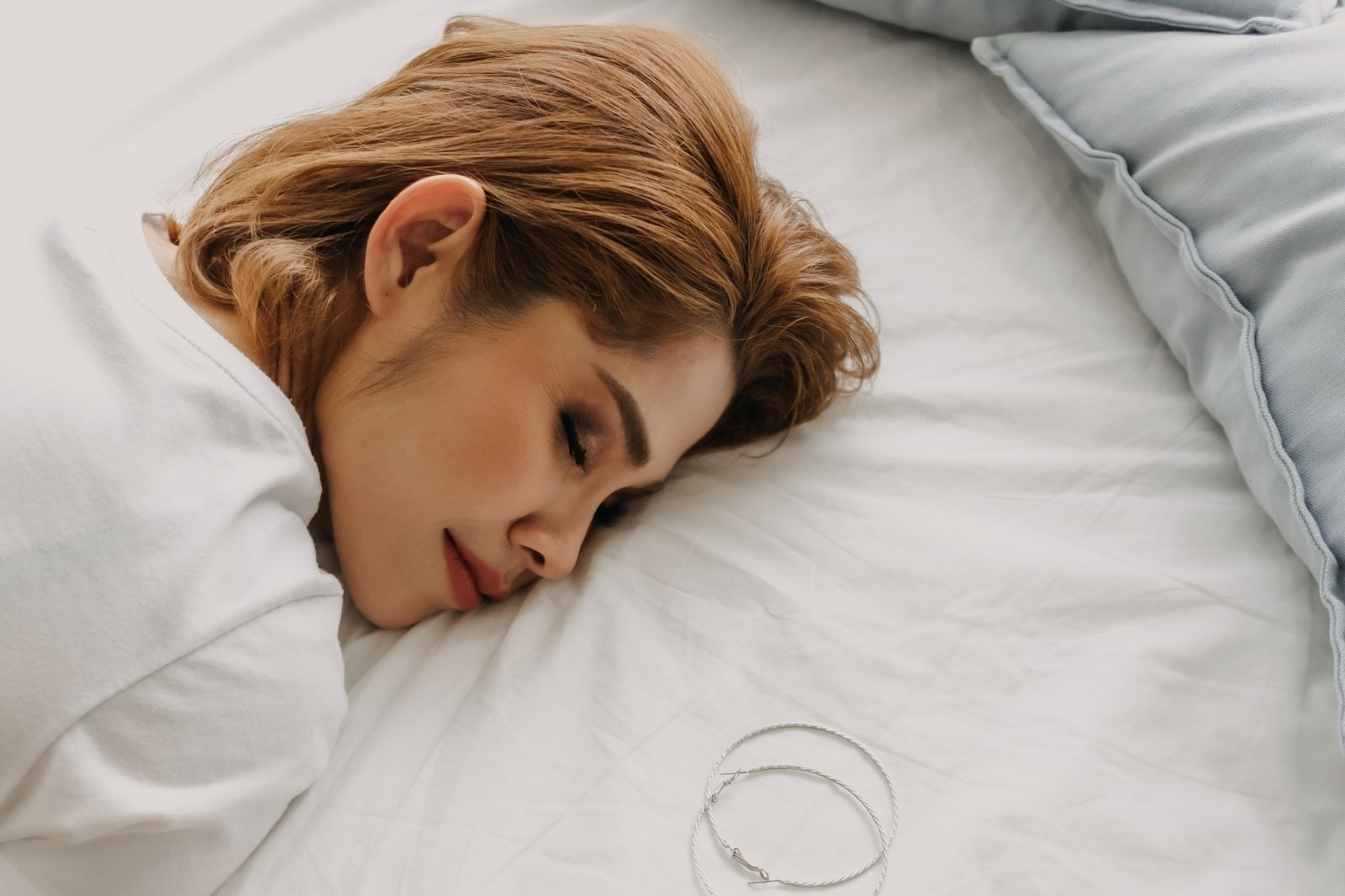Why Is Sleeping in Makeup Bad?

Say you’ve had a night out partying and want to pass out as soon you make it to your bed, so you do. You collapse onto your sheets and pillows without removing your makeup. In the morning, you deal with the mess on your pillowcases and wash off your remaining makeup. While it might seem like a harmless mistake, consistently sleeping in makeup can have several detrimental effects to your skin’s health. Understanding why this habit is harmful might make you think about a diligent nighttime skincare routine. Here’s why sleeping in makeup is bad for your skin and how to avoid the negative consequences.
Clogged Pores and Acne
One of the primary reasons sleeping in makeup is harmful is that it can lead to major breakouts. Makeup products, especially those that contain oils and heavy ingredients, can mix with sweat, dirt, and dead skin cells on your face throughout the day. When you don’t cleanse your skin before bed, these substances block your pores and create an ideal environment for bacteria to thrive. This can lead to bad breakouts, so unless you want to be constantly relying on acne patches, take off your makeup before sleep.
Premature Aging
Makeup can contribute to premature aging. Many makeup products contain pigments and chemicals that can be abrasive or irritating to the skin. When left on for extended periods, these substances can break down the skin’s natural barrier and accelerate the formation of fine lines and wrinkles. Additionally, makeup residues can prevent your skin from regenerating properly during sleep.
Dull and Uneven Skin Tone
Sleeping in makeup can lead to a dull and uneven complexion. Makeup that remains on the skin can interfere with the natural exfoliation process, where dead skin cells are shed to make way for fresh, new cells. This buildup of dead skin cells, combined with the residue of makeup, can make your skin look tired.
Increased Risk of Eye Infections
Sleeping in eye makeup increases the risk of eye infections. The residue from mascara and eyeliner can cause blocked tear ducts, styes, or conjunctivitis (pink eye). Additionally, rubbing your eyes during sleep can damage the delicate skin around the eyes.
Impaired Skin Barrier
Makeup left on overnight can disrupt your skin barrier. This makes the skin more susceptible to irritation, dryness, and sensitivity. Makeup makes it harder for your skin to retain moisture and protect itself from external stressors too.
Makes Skin Products Less Effective
If you regularly sleep in makeup, you may find it challenging to achieve the desired results from your skincare treatments. Cleansing is a fundamental step in any skincare routine. It removes impurities and prepares the skin to better absorb retinol serums, moisturizers, and other treatments. Failing to remove makeup can hinder the effectiveness of your products.
Tips for Avoiding Sleeping in Makeup
To protect your skin and avoid the negative effects of sleeping in makeup, consider adopting these practices:
- Develop a Consistent Nighttime Routine: Make removing your makeup a non-negotiable part of your nightly routine! Use a gentle cleanser with a cleansing brush or micellar water to ensure all traces of makeup are removed.
- Use Double Cleansing: For a thorough cleaning, consider double cleansing. Start with an oil-based cleanser to break down makeup, followed by a water-based cleanser to remove any remaining residues.
- Keep Makeup Remover Wipes Handy: If you’re too tired to follow a full cleansing routine, makeup remover wipes can be a quick solution. While not as thorough as traditional cleansing, they can help you remove makeup before bed.
- Invest in Gentle Products: Choose gentle, non-comedogenic makeup and skincare products that are less likely to irritate your skin or clog pores.
- Prioritize Skin Health: Make your skin’s health a priority by incorporating a regular AM and PM skincare routine.
Conclusion
Sleeping in makeup is more than just a minor inconvenience—it can have serious consequences for your skin’s health and appearance. You don’t want clogged pores or eye infections. It’s not worth the risk. By adopting a consistent nighttime skincare routine and making the effort to remove makeup each night, you can help maintain a healthy, radiant complexion. Remember, your skin needs time to breathe and repair itself overnight, so make cleansing a priority!